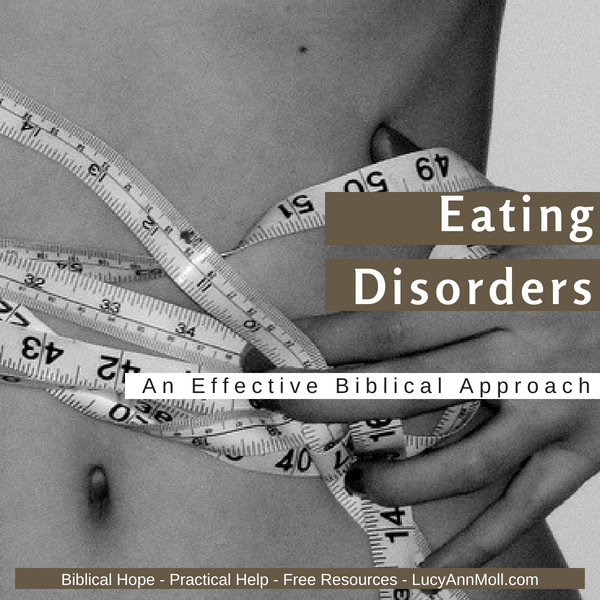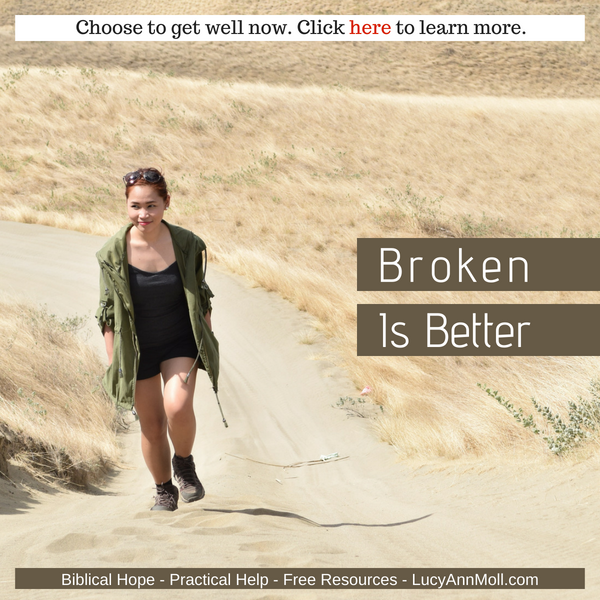
by Lucy | Nov 7, 2018 | emotions, relationships |
What are the top needs of moms?
A while back, I queried a few hundred moms in a Facebook group, asking their top 3 needs. My imperfect scientific study revealed these three top vote-getters:
1. A support system of family and/or friends
2. Time alone
3. Encouragement
In this short article, let’s focus on #1. Your can read more about time alone and encouragement here and here.
Family: I Need a Mother Too
Are you old enough to remember the 1970’s TV show “The Waltons“? Watching reruns warmed my toes many an afternoon. Ma and Pa would have a problem on the farm, and the family and neighbors would stick together to solve it. The bonded in tough times.
John Boy was kinda cute in a geeky way. Me and Mary Ellen–we could have been best friends. Grandma had a sour personality too, but she cared, really cared. You could tell.
Back then, in my grade school years, I ached for the sense of belonging too. A network of caring people take note of your needs. They help you and pray with you and for your. They listen. And no one does this better than famiy–usually but not always. Read more about overcoming pain caused by family.
Finding Close Friends at Church!
A couple decades ago, when my family moved to a new home in a small city away from family and friends, I put a plan in action.
Join a friendly church and — presto! — embrace a new, big family.
But my plan was a fail! You see, once we settled into our new church, our friendly “friends” quickly turned back to their own tight circles of longtime buddies.
Have you looked to a church or other group as your support system because you lacked family and friends? How did it go for you? Could you be at home at a church where you were close to Jesus yet not so close to the people? Did you reach out too?
Making Mama-Friendly Connections
The women I queried shared a bunch of ideas on creating a support system when family and friends. Here are some.
Friends to Listen
Babysitter!
- One mom had to return to work when her baby was a newborn. “A reliable babysitter who was prompt, a woman who truly loved children and was extremely dependable.”
- Another woman with four small children says she needs “a friggin’ baby sitter during the day so that I can go get things done without kids, or so if one child has an appointment, I don’t have to lug all of them with me.”
- “Before I had my boys, we lived in a neighborhood where the mothers would trade time, watching each others kids, so they could have some time to do something else. Kind of a babysitting co-op. I think for every hour you put in, you got one back.”
A Mentor
- When family is far away, having an older woman helps. Her wisdom, her laughter, her presence. Also mentors for kids!
“One of my top needs or desires while they were younger (and even now) was/is for older mentors or adults to be in their and our lives. They have no grandparents, no uncles, aunties or cousins and at times I would just love someone to encourage and give advice and just be proud of our children like we are.
I can only imagine what it might be like to ring my parents up and say help or come to this show to watch the kids! I guess I’m saying mentors or adopted aunties or uncles would be a dream come true.”
- Shares a mom who husband travels a lot: “My youngest (has) ADHD. A male mentor could have helped him in his social maturity and awkwardness.”
Friends, please share one of your mama needs in comments. Let’s encourage one another.
Counseling Hearts to Hope!


by Lucy | Sep 5, 2018 | biblical counseling
Welcome to “How to Talk Like Jesus!” This short series helps you communicate the truth in love with family, friends, and neighbors who might “make” you want to scream or run like Forrest Gump. Are you ready for the secret to godly communication? Let’s go.
 Your Talk Exposes Your Heart
Your Talk Exposes Your Heart
Did you know what you say and how you say it reveals a lot about you? And about what you think of God? Your communication exposes your heart.
For the mouth speaks out of that which fills the heart. Matthew 12:34, NASB
As in water face reflects face, so a man’s heart reveals the man. Proverbs 27:19, NKJV
As a man thinks in his heart, so is he. Proverbs 23:7, NLT
Here’s a time I handled communication poorly. The family member: my dad’s wife.
She doesn’t like me very much. I’m not sure why. A while back, she stomped into a restaurant where my dad and I were enjoying a late lunch, and her words flew at me like daggers: “Why are you here with him? He should be home with the children. You just want his money.” I said, “The children are young adults. And I’m here to see my dad, not get money.” He tried to quiet her and I moseyed toward the hostess at the cash register.
Honestly, I just wanted to feel safe, not talk like Jesus. I withdrew. Thankfully my dad’s wife soon left. I felt sad, confused. My dad felt worse. His smile had become a grimace.
Your Talk Reveals Your Beliefs
 Your heart is highly important to God. Think of your heart as the control center of your inner self. It reveals your beliefs and your motivations.
Your heart is highly important to God. Think of your heart as the control center of your inner self. It reveals your beliefs and your motivations.
What you believe guides your thoughts and actions. God cares about your communication because he cares about you and your beliefs.
He desires your focus to be on Jesus, not on yourself. When your beliefs are “me-centered,” you’ll show them by what you say and what you do. A “me-centered” heart is prideful, selfish, lonely, angry, fearful, and sad, and such is your communication.
Did you know that the Bible says if a person can control their tongue, they’ll be able to control all their desires/passions/affections?
For we all stumble in many ways. If anyone does not stumble in what he says, he is a perfect man, able to bridle the whole body as well. James 3:2, NASB
How to Talk Well
Dr. Stuart Scott, an author and a professor at the Southern Baptist Theological Seminary, shares six prerequisites to good communication. Here are the first two. In the next Wednesday Word, you’ll discover more.
- To talk like Jesus, you must want to please God more that anything else. Ask God for help in desiring to please him more than you want to have your own way or to be right. Desire to know him as he reveals himself in Scripture.
For am I now seeking the approval of man, or of God? Or am I trying to please man? If I were still trying to please man, I would not be a servant of Christ. Galatians 1:10, ESV
- To talk like Jesus, you must be humble. The opposite of humility is pride. When you choose to communicate humbly, your words and your nonverbal communication will demonstrate patience. If you’re humble you’ll be patient when you’ve been misunderstood. You’ll lovingly speak truthfully, and you’ll listen much more than you talk.
Make It Practical!
To help improve your communication, choose this week to do two things:
First, do not interrupt when someone else is speaking. Instead, listen.
Second, when you’re talking, pause once in a while, so the other person has a chance to speak.
 Friends, are you interested in impoving communication with your spouse? Your family? A boss? I’d love to counsel hope to your heart and give you biblical solutions to the problem you’re facing. Send me a message and we can set up a complimentary 20-minute consultation by phone.
Friends, are you interested in impoving communication with your spouse? Your family? A boss? I’d love to counsel hope to your heart and give you biblical solutions to the problem you’re facing. Send me a message and we can set up a complimentary 20-minute consultation by phone.
Counseling Hearts to Hope,


by Lucy | Aug 23, 2018 | biblical counseling, emotions |
God met me at the library. How strange! How crazy and wonderful and amazing!
Twenty-three years old, newly married and out of work, I scanned the shelves for redecorating books. I wanted something, anything, to turn my two-bedroom apartment into a home. Someplace cozy for my husband, Laces (our shy beige kitty) and me. God had another idea. A better idea.
Cradling several books, I felt drawn to the 200s yet jittery like a kid on Red Bull.

Lucy Ann Moll
Why Am I Here?
Why am I here in the religion aisle? This is strange. Has God brought you to a strange place too to get your attention?
Flanked by books, I slid out Basic Christianity by John Stott. Simple, direct, basic like the title said. So basic I felt stupid. I looked left, right. No one near me. Good. I stuck it back and grabbed a fat book. An important book. That’s better. . .and boring.
Back to Basic Christianity and my spirit quickened. A new problem: What would the check-out clerk think? Seriously, BASIC Christianity. She’ll think I’m stupid. Have you worried about what others think too?
A Holy, Terrifying Moment!
Today, as I look back, I know this moment was holy. God faced the evil one on my behalf. Would I side with God? Or my foolish pride? The serpent appealed to Eve’s ambition to be like God. Would I bow down to pride, fear, self-importance?
You know who won: God. He guided me from the checkout to my apartment, where I devoured the simple book and trusted Jesus to make his home in me. I sensed God’s Spirit in me. A peace and joy I cannot describe replaced my restlessness. When my husband came home, I hugged him big and said, “Guess what I did today, honey?”
Later, I asked to borrow his Bible, a soft cover New Testament that I read over and over and over. God knew I loved books. So he gave me his very best.
Now the Rest of the Story
We each have precious stories of how God wooed us. How did he woo you? Do you remember where you were and what you were doing? Were you in crazy place looking for calm?
As a child I knew emotional pain. Did you have a difficult childhood too?
I leaned toward girls like me. Quiet, shy, invisible girls. Girls with hurts. With secrets. In my early 30s, I tripped into a black hole of depression. God “mothered” me back to life, then whispered a call to my heart, confirmed by scripture. He said, “Bind up the injured” and “strengthen the weak” (Ezekiel 34:16) and led me to study pastoral care to women at Western Seminary, Portland. Later I trained to become a certified biblical counselor through the ABC and then from ACBC.
At last, I knew why God met me at the library. He planned and purposed me to serve him in the role of biblical counselor. As God gave me hope, I counsel hearts to hope. And recenty I’ve been working on my doctorate at Birmingham Theological Seminary. This has opened doors too.
An Offer
Would you like to talk in person or by Skype/Facetime/Hangouts about a solution for your struggle? I’ve counseled people by webcam from California to Cambodia, New York to New Zealand, Houston to Hong Kong, Pennsylvania to Paraguay.You get the idea. I also have offices in greater Chicago where I meet women, couples, and children in person.
Send me a message and we can set up a time to talk by phone, and you can see if biblical counseling is a good fit for you. The best thing about biblical counseling is it’s gospel-centered as well as compassionate. It’s also effective, affordable, and usually very short-term. God loves you so much and wants the best for you.
Counseling Hearts to Hope,


by Lucy | Aug 7, 2018 | biblical counseling, emotions, whole health wellness |
Eating disorders — this problem has a comprehensive Christ-centered solution. It involves biblical counseling and often medical professionals for lasting change. Guest blogger Hayley Satrom, a biblical counselor with HeartSong Counseling in Washington, D.C., shares her article that originally appeared on the Biblical Counseling Coalition website and is used with permission.

As a biblical counselor, I meet with many people whose lives, hearts, and minds are controlled by an obsession with food. Whether anorexia, bulimia, or binge-eating, disordered eating patterns are very common among my counselees. I’ve also found that often they need professional assistance beyond what I alone can provide.
Now, hear me out. I believe there are many counseling issues we biblical counselors can face without additional help from other trained medical professionals. That said, eating disorders, in my opinion, are simply not of that category.
After working with many anorexic and bulimic individuals, I have come to respect, and indeed mandate, a team approach to their care.
A Three-Pronged Approach
It was actually my supervisor, Deepak Reju, who was the first to suggest I utilize what he called a “three-pronged approach” in caring for counselees with eating disorders. “What are these three prongs?” you ask.They are:
- Biblical counselor
- Medical physician
- Nutritionist.
I now live by these three prongs when I counsel folks with eating disorders. Also the additional support has served me well as a counselor, and more importantly, has served my counselees.
Why the Extra Help?
On our best days, I like to think of biblical counselors as “specialists” when it comes to unearthing and tackling heart issues. And we do this by God’s grace—through His Spirit, by His Word, and in His church.
So please hear me that I am well aware that eating disorders are fraught with many heart issues. These heart issues include control, escape, body image distortion, anxiety, depression, distrust of God, confusion about God’s character, fear of man, and the list could go on and on. This list only begins to describe the important themes that a biblical counselor can and should unpack with someone who struggles with an eating disorder.
Is this enough, though? When a woman is abusing her physical body through either deprivation or bingeing of food, is processing heart issues the only help she needs? I can tell you that, from my experience, the answer is “No.”
In fact here are just a few of the ways a physician and nutritionist have come to my aid in counseling folks with eating disorders in the past:
Physician:
- Can tend to the innumerable health problems that are consequential to eating disorders (gastrointestinal disorders, heart problems, low blood sugar, fainting spells, etc.);
- Tests the body for important nutrients that may be low for someone abusing food (e.g. potassium, iron) and can prescribe supplements when needed;
- Will track the patient’s weight over time and can flag if the need for more intensive inpatient care is required;
- Can prescribe psychiatric medication if needed (or a psychiatrist could be used for this as well).
Nutritionist/Dietician:
- Manages everything food-related for the counselee;
- Creates meal plans for breakfast/lunch/dinner/snacks for a typical day and week;
- Provides specific accountability for food-related plans and goals;
- Conducts weekly weigh-ins (often blind to the patient) for the counselor and physician to refer to in monitoring the counselee’s progress.
As you can see, physicians and nutritionists can be of great help to the biblical counselor in caring for someone with an eating disorder. In fact, their support regarding the patient’s health and food needs allows a biblical counselor more freedom to spend the time in counseling appointments on what we do best—tending to the heart issues underneath the symptoms.
How Does It Work?
In practice, I try to meet weekly with counselees who are actively struggling with an eating disorder. I also suggest weekly meetings with their nutritionist for the sake of ongoing help in food-planning and accountability, as well as regular weigh-ins. Weigh-ins are particularly important for anorexic counselees. Their health and even very life are at risk if their weight drops too low.
Physician appointments do not need to be so frequent, unless specified by the doctor. In general, I find it best to allow the physician to lead the conversation on how frequent the patient needs to see him or her. Frequency of visits will depend upon the specific health challenges that exist due to the eating disorder, which is different for every counselee, of course.
I think it is helpful to check in with the physician and nutritionist every month or so to share notes on the counselee and to discuss next steps in coordinating her care.
Linking Hands
As biblical counselors, we provide an invaluable service of helping others change by addressing the heart issues that underlie thoughts and behaviors. We try to lead people to Christ—to know Him, trust Him, and lean into Him for help with even the hardest struggles. This service is necessary and irreplaceable. That said, in some situations we can do more. In fact, in some situations we NEED to do more.
An eating disorder is one of those situations. Eating disorders can be dangerous with many physical health consequences. Let’s link hands with other experienced caregivers who can advise our counselees on certain matters better than even we can. By caring for our counselees’ souls, minds,and bodies surely we will bring much glory to God.
Join the Conversation
- What are your convictions regarding biblical counselors engaging with other care-giving professionals?
- What else have you found to be helpful and effective as you care for individuals with eating disorders?
- Maybe you have even struggled with an eating disorder yourself. What advice would you give to caregivers?
Counseling Hearts to Hope,


by Lucy | Jul 24, 2018 | biblical counseling, emotions
Broken is better.
Guest blogger Suzanne Holland — see her page HERE on Heart2Heart Counseling Directory — brings home the truth that your reponse to life’s problems is what matters. And a biblically healthy response is what ultimately brings glory to God. Her article appeared first here and is used with permission. –LAM
In This Life, You Will Have Trouble
Life is full of pain and suffering. In a world of uncertainty, there is only one sure thing: You will have trouble.
Yet man is born to trouble
as surely as sparks fly upward. (Job 5:7).
The only thing that is optional is your response to that trouble.
Click & Tweet!
So you have many choices when it comes to how you respond emotionally to pain and suffering in your life. Now I’d like to talk about a few of those, some or all of which you may have chosen in your time of trial. Then I’d like to share a choice that is always better.
Respond with Fear
First, you can respond to your pain with fear. If you have a chronic or debilitating illness, you may be fearful of a new or worsening pain or symptom. And you may begin to wonder what you will do if it continues to get worse.
How will you cope? Who will take care of you? What will you do when you can’t do what you need to do? Fear of increased pain gangs up with panic about the future. Pretty soon, you have bullied yourself into a fear response. This fear drives you more into yourself, and away from God. (For Help for Fear, contact Lucy. She’s been there and tossed the T-shirt.)

Respond in Anger
Or, you may choose to respond in anger, telling yourself that you don’t deserve this, and that it’s not fair.
This response seems more powerful than fear. Instead of cowering in a trembling heap, you shake your fist at your condition, your doctor, or maybe even at God. This anger gives you a false sense of empowerment from within, and causes you to think that you don’t need God’s power. But this puts distance between you and your great High Priest.
Respond with Despair
A third response that is common among suffering believers is despair. Maybe you’ve been knocked down many times, but have managed, by the grace of God, to get back up again. Now, after many TKOs, you have given up. You just don’t have the fight in you anymore.
Somewhere along the way, you started looking to your own strength for the next round. But now that strength is spent. You can’t get up again, and you really don’t even want to. You are done.
Risk Bitterness
All of these responses can lead us to one very dangerous place: Bitterness. A person who is bitter has probably been through all three of these responses, and possibly several others, before arriving at bitterness. When these fleshly attitudes go unchecked, they inevitably lead us to a place where we have little or no faith in God, and we really don’t care.
We are disappointed, angry, and without hope. We nurture and feed grudges against those who have harmed us, and we curse God, and anyone else, who has denied us what we believe we are entitled to. This is bitterness.
According to Isaiah 43:7, we were created for God’s glory.
…everyone who is called by my name,
whom I created for my glory,
whom I formed and made.
If this paragraph describes you, ask yourself, “How does my bitterness glorify God?” If you’re honest, you will have to confess that your bitterness does not, and could never, bring glory to God. In fact, if bitterness persists, and you are just fine with it, you might want to examine whether or not you are even a believer.
A Better Alternative
However, there is another alternative. Rather than becoming bitter, we can confess and embrace the fact that we are broken. Our body is broken. Our heart is broken. We have no strength or power left to fight what God is doing through our trial.
We must submit to His will for us, surrendering our desire to control our situation. So we must hand over our pain, our suffering, our fear, anger, and despair to Him.
He alone is able to handle them. He loves us, and desires to make us more like Him. And he wants to use this pain to bring us into His arms. He wants to take our heavy burden of fear, anger, and despair, and exchange it for His light, easy one.
Plea for Understanding
Dear sister in Christ, you are weak. If you have convinced yourself otherwise, you are deceived. (Jeremiah 17:9). I know you may not like to hear that you’re weak and broken, but please believe me when I say that this is a good thing!
Hear the words of the apostle Paul, who suffered so many things for the sake of the Gospel:
Therefore I take pleasure in infirmities, in reproaches, in needs, in persecutions, in distresses, for Christ’s sake. For when I am weak, then I am strong (2 Corinthians 12:10).
This statement follows Paul’s description of his pleading with the Lord to remove the thorn in his flesh. God’s answer?
My grace is sufficient for you, for my strength is made perfect in weakness (2 Corinthians 12:9).
Do you want God’s perfect strength in your battle against pain and the heartache that comes with it? Do you believe that God’s grace is sufficient for you?
God has given you your weakness as a gift, to help you bring glory to His great name and to make you more like His precious Son! Give in to fear, anger, and despair, and you will be bullied, powerless, and hopeless. Once you get there, you are standing at the doorstep of bitterness.
Turn from these things, my friend, and be broken. Broken is better.
Counseling Hearts to Hope,












